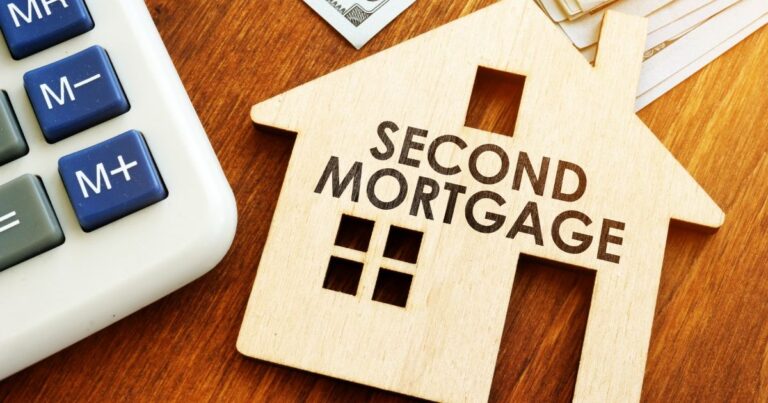Introduction
Second mortgages have become a popular financing option for homeowners seeking to leverage their properties’ equity. Whether you’re considering a home renovation, debt consolidation, or a major expense, understanding the ins and outs of second mortgages is crucial before making a borrowing decision. This comprehensive article will explore the concept of second mortgages, discuss their benefits and considerations, and provide you with essential information to make an informed choice. Before taking out a second mortgage, learn everything you need to know by reading on.
Understanding Second Mortgages
What are Second Mortgages?
In addition to their primary mortgage, second mortgages let homeowners borrow money against the equity in their homes. It is a secured loan, with the property serving as collateral. Second mortgages are typically taken out in addition to the first mortgage and can give homeowners access to a significant amount of funds.
Types of Second Mortgages
There are two primary types of second mortgages:
- Home Equity Loans: Home equity loans offer an upfront lump sum of cash, which borrowers return over a predetermined period with consistent monthly payments and an agreed-upon interest rate.
- Home Equity Lines of Credit (HELOC): With a predetermined credit limit and the ability to borrow and repay money as needed throughout the draw period, a HELOC operates more like a credit card. HELOC interest rates are frequently adjustable.
Benefits of Second Mortgages
- Access to Equity: Second mortgages give property owners access to the equity they have accumulated in their homes, giving them large amounts of money for things like debt reduction, home renovations, and educational costs.
- Lower Interest Rates: Compared to other types of loans, second mortgages generally offer lower interest rates due to the collateral provided by the property. This can make them an attractive option for borrowers looking to secure financing at a more favorable rate.
- Potential Tax Benefits: In some cases, the interest paid on a second mortgage may be tax-deductible, particularly if the funds are used for home improvements. However, it’s essential to speak with a tax expert to comprehend the precise tax ramifications of your circumstance.
Considerations and Risks
- Increased Debt Burden: Taking on a second mortgage means adding to your existing debt obligations. Before proceeding, evaluate your financial situation and ensure that you can comfortably manage the additional monthly payments associated with the second mortgage.
- Property as Collateral: Like the primary mortgage, a second mortgage uses the property as collateral. You run the risk of facing foreclosure and losing your house if you can’t make the necessary payments. Before taking out a loan against your home, evaluating your ability to repay the debt is crucial.
- Costs and Fees: Second mortgages come with closing costs and fees, including appraisal fees, origination fees, and potentially mortgage insurance. These additional expenses should be factored into your decision-making process to assess the overall cost of borrowing accurately.
Applying for a Second Mortgage
- Evaluate Your Needs: Determine the purpose of the loan and assess your borrowing requirements. Consider factors such as the amount of funds needed, the desired loan term, and your ability to make the monthly payments.
- Research Lenders: Shop around and compare offerings from various lenders, including banks, credit unions, and online mortgage providers. Look for competitive interest rates, favorable terms, and a reputable track record.
- Prepare Documentation: Gather the necessary documentation, which typically includes income verification, tax returns, proof of homeownership, and information on your existing mortgage. Having these documents ready can expedite the application process.
- Loan Approval and Closing: Submit your application to the chosen lender. The lender will assess your eligibility, review your credit history, and conduct an appraisal of your property. You will be sent the loan terms and conditions if you are accepted. Examine them thoroughly, and if satisfied, carry with the closing procedure.
Conclusion
Second mortgages can be a useful financial tool for homeowners looking to tap home equity. They offer the potential for lower interest rates, tax benefits, and the opportunity to secure significant funds for various purposes. However, it’s essential to consider the risks and responsibilities associated with second mortgages, including increased debt and the potential loss of your home in the event of non-payment. You may make a choice that is in line with your financial objectives and situation by comprehending the advantages, factors to take into account, and application process described in this article.
FAQs
What is a second mortgage, and how does it differ from a primary mortgage?
A second mortgage is a loan that homeowners take out using the equity in their property as collateral. It is an additional loan on top of the primary mortgage and allows borrowers to access funds for various purposes. Unlike a primary mortgage used to purchase a home, a second mortgage is typically used to leverage existing equity in the property.
What can I use a second mortgage for?
Second mortgages can be used for a variety of purposes. Common uses include home improvements, debt consolidation, education expenses, or major purchases. The funds from a second mortgage can provide flexibility to borrowers in achieving their financial goals.
How much can I borrow with a second mortgage?
The amount you can acquire with a second mortgage depends on a number of factors, including your home’s appraised value, the amount of equity you have, and the lender’s specific criteria. Typically, lenders offer second mortgages up to a certain percentage of the property’s appraised value, commonly ranging from 80% to 90%.
What are the risks of taking out a second mortgage?
One of the main risks of a second mortgage is the potential for foreclosure if you are unable to make the required payments. Since the property is used as collateral, failure to meet the loan obligations may result in the lender initiating foreclosure proceedings. It’s important to assess your financial situation carefully and ensure you can comfortably manage the additional debt.
Are second mortgages’ interest rates higher than primary ones?
Interest rates for second mortgages are typically slightly higher than those for primary mortgages. This is because second mortgages are considered riskier for lenders since the primary mortgage takes priority in the event of foreclosure. However, the rates for second mortgages are generally lower than those for unsecured loans, making them a more affordable option for borrowers in need of funds.
Visit our website ExpressMortgageQuotes.com to learn more.




